Riverine Microplastics Pollution in ASEAN Countries – Current State of Knowledge
- English
- SDGs, Circular Economy
Plastic pollution is considered one of the most challenging global environmental issues because of its negative impacts on aquatic environments. Plastic contaminants in freshwater are a threat to ecosystems and also a potential health hazard to humans. Rivers carry plastic litter into marine environments, and pollution that was once local then becomes a global problem. It is estimated that between 1.15 and 2.41 million tonnes of plastic litter are annually discharged into the ocean through rivers, with 86% of this reportedly carried via rivers in Asia. Rapid economic development, changes in urban lifestyles and consumption patterns, mismanaged plastic waste, and regular heavy rainfall are considered to be the main reasons for the occurrence of plastic litter in Asian rivers. Microplastics, either primary (pieces of less than 5 mm) or secondary (derived from the breakdown of larger plastics), are an emerging pollutant. They remain in water environments for decades, accumulate harmful chemical pollutants on their surface, bioaccumulate through the food chains, and eventually enter the human body. To facilitate scientific evidence-based policy-making to address this issue, it is important to have a better understanding of the occurrence, fate and impacts of microplastics.
This session will look at the current knowledge on microplastics in terms of ecosystems and human health, and initiate a discussion on how to improve the situation by limiting entry of microplastics into all water environments, through a review of case studies in ASEAN countries.
Policy Researcher, Adaptation and Water Area, IGES
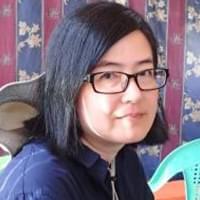
INAMURA Yukako
Policy Researcher, Adaptation and Water Area, IGES
Dr. INAMURA Yukako is a policy researcher of the Adaptation and Water Area in IGES and a liaison at the Secretariat of the Water and Environment Partnership in Asia (WEPA). Prior to joining IGES in June 2021, she engaged in water related research projects in University of California, Davis and Cornell University, ODA projects at the Ministry of Foreign Affairs of Japan, and other water and agriculture related research and publication activities in JICA Research Institute, OECD and UNU-IAS. She received Ph.D in Sustainability Science from UNU-IAS.
Researcher, French National Research Institute for Sustainable Development (IRD) / Mediterranean Institute of Oceanography (MIO) / Ho Chi Minh City University of Technology (HCMUT)
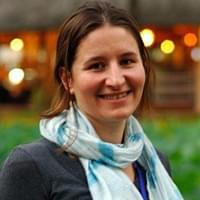
Emilie Strady
Researcher, French National Research Institute for Sustainable Development (IRD) / Mediterranean Institute of Oceanography (MIO) / Ho Chi Minh City University of Technology (HCMUT)
Dr. Emilie Strady is a French Researcher working at IRD, the French National Research Institute for Sustainable Development, and MIO, the Mediterranean Institute of Oceanography in Marseille, France. She has been affiliated with the Ho Chi Minh City University of Technology (HCMUT) in Viet Nam to lead research on plastic pollution in Vietnamese aquatic environments since 2015. After receiving PhD in Geochemistry and Ecotoxicology, her research focuses on the assessment, flux estimation, and transfer of macroplastic and microplastic at the city-river-coast continuum and between the different compartments (water, sediment, atmosphere, biota). Since 2019, she has been supervising a monitoring network composed of Vietnamese researchers, which aims to quarterly assess the national level microplastic concentrations in Vietnamese lakes, reservoirs, rivers, estuaries, lagoons, bays (COMPOSE project).
Deputy Director, Adaptation and Water Area, IGES
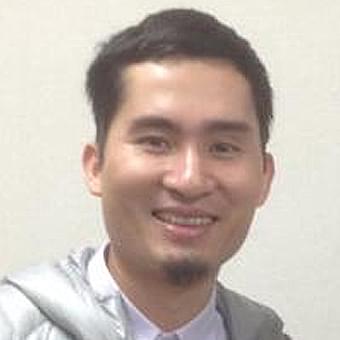
Pham Ngoc Bao
Deputy Director, Adaptation and Water Area, IGES
Dr. Pham Ngoc Bao obtained his Ph.D degree from the University of Tokyo in Japan in the field of Environmental Engineering and Management. He has more than 15 years of professional experience in conducting, managing and leading international policy-oriented research and capacity building projects in Asia, especially related to water supply & sanitation, sustainable consumption and production, resource conservation and recycling, and marine plastics pollution. Dr. Bao is currently serving as Deputy Director at IGES, leading a number of international projects funded by various international development partners and donor agencies such as JICA, UNEP, UNESCAP, and the Ministry of the Environment of Japan.
Head of Environmental Engineering Post Graduate Study, Insitut Teknologi Bandung
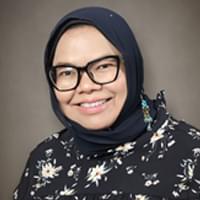
Emenda Sembiring
Head of Environmental Engineering Post Graduate Study, Insitut Teknologi Bandung
Dr. Sembiring is the head of Environmental Engineering Post Graduate Study at Institut Teknologi Bandung (ITB). She has been working on issues related to solid and hazardous waste and plastics for long time. She is the principle investigator of several projects on plastic funded by international research institute and network and also involved in the international collaboration with Japan, UK, Thailand, Vietnam and the Netherland. She received Ph.D in Urban Environmental Management from Asian Institute of Technology.
Frederick Bartman Collegiate Professor of Climate and Space Science, University of Michigan

Chris Ruf
Frederick Bartman Collegiate Professor of Climate and Space Science, University of Michigan
Chris Ruf received the B.A. degree in physics from Reed College and the Ph.D. degree in electrical and computer engineering from the University of Massachusetts. He is currently the Frederick Bartman Collegiate Professor of Climate and Space Science at the University of Michigan. He has worked previously at Intel Corporation, Hughes Aircraft/Space and Communications Group, the NASA Jet Propulsion Laboratory, and Penn State University. His research interests include remote sensing methods, atmospheric and oceanographic applications, and spaceborne sensor technology development. Prof. Ruf is Principal Investigator of the NASA Cyclone Global Navigation Satellite System (CYGNSS) mission.
Economic Affairs Officer, Circular Economy Sustainable Urban Development Section, Environment and Development Division United Nations Economic and Social Commission for Asia and the Pacific

Janet Salem
Economic Affairs Officer, Circular Economy Sustainable Urban Development Section, Environment and Development Division United Nations Economic and Social Commission for Asia and the Pacific
Janet has been working with the United Nations on environmental sustainability over the last 15 years, with a focus on sustainable resource management. Currently, she manages a program supported by the Government of Japan called Closing the Loop, which uses plastic pollution calculators and remote sensing from land and space to monitor plastic pollution in South East Asia cities, after which is supports them in the development of city action plans to prevent plastic leakage. Previously her focus has been on sustainable consumption and production, and circular economy solutions, which she applied through science policy interfaces (International Resource Panel), national policy development, private sector strategy, education and consumer facing programs. She established the Asia Circular Economy Leadership Academy, and the Asia Pacific Low carbon lifestyles challenge, a startup competition for entrepreneurs with alternatives to single use plastics and carbon intensive products. Her key interest with regards to the use of remote sensing for plastic pollution is building a digital twin of the natural world to enable cooperation between stakeholders to prevent pollution. She has a Masters degree in Environmental Engineering from the University of New South Wales (Australia), and is currently undertaking a part-time PhD on Integrated Sustainability Analysis at the University of Sydney.
Policy Researcher, IGES Centre Collaborating with UNEP on Environmental Technologies (CCET), Sustainable Consumption and Production Area, IGES

Amila Abenayaka
Policy Researcher, IGES Centre Collaborating with UNEP on Environmental Technologies (CCET), Sustainable Consumption and Production Area, IGES
Amila is a marine plastic litter and life cycle, assessment researcher. His main working areas are land-based marine plastic litter assessment, microplastics in water environments, and life cycle assessment of plastics and plastic-related products. Before joining IGES-CCET, he worked as a Research Engineer at Pirika Association, Japan where he gained experience in assessing microplastic pollution in the ASEAN region. Amila co-authored several peer-reviewed journal publications and book chapters related to microplastics in water and wastewater-related environments.
Vice-Chairman of Indonesian Plastic Recycling Association
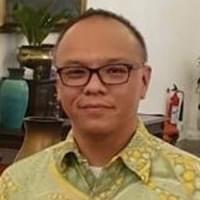
Justin Wiganda
Vice-Chairman of Indonesian Plastic Recycling Association


- Final version.jpg?itok=qMf6KlGt)




